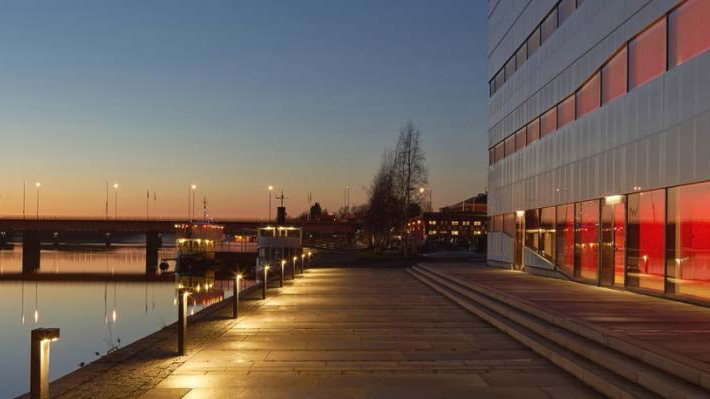The team’s proposal entails retrofitting the city’s existing streetlights into beacons of sustainability. The ability to dim the streetlights would reduce light pollution and allow locals and tourists alike to experience the Nordic light in the city. In addition, the streetlights could act as a Wi-Fi hotspot, charge electric vehicles, Vehicle-to-grid (V2G), collect informatics and host interactive information kiosks.

Turning streetlights into beacons of sustainability
The City of Yellowknife, in partnership with White Arkitekter, Ecology North and Northland Utilities, has been selected as a finalist in the Smart Cities Challenge. The Canadian competition encourages communities to adopt an approach to improve the lives of their residents through innovation, data, and connected technology.
The first step will be creating a mesh network among our lampposts that allow them to communicate with each other and with a central location. From there, much like apps on a smart phone, a variety of innovative ideas could be incorporated into the lamppost to help us achieve our desired outcomes and to improve the sustainability of Yellowknife.

Smart sensor integration at Väven Cultural Centre, Umeå, Sweden
In Scandinavia, we have a sensible, integrated approach to urban planning with smart energy solutions greatly benefitting our Nordic cities. This “big-picture” approach has social advantages in addition to economic and ecological advantages. Kindred spirits, our team shares a vision of providing more experiential urban spaces by reducing the lighting pollution, so we can share the beautiful night sky together.
White was chosen as a partner based on its human engagement and Scandinavian approach to architecture, in which light design is an integral part.
Over 200 communities, large and small, from across Canada submitted their innovative ideas to the challenge. As a finalist, the City of Yellowknife has been awarded a CAD$250,000 grant to help the team develop its proposal.
For more information, visit Impact Canada.
Contact Person
